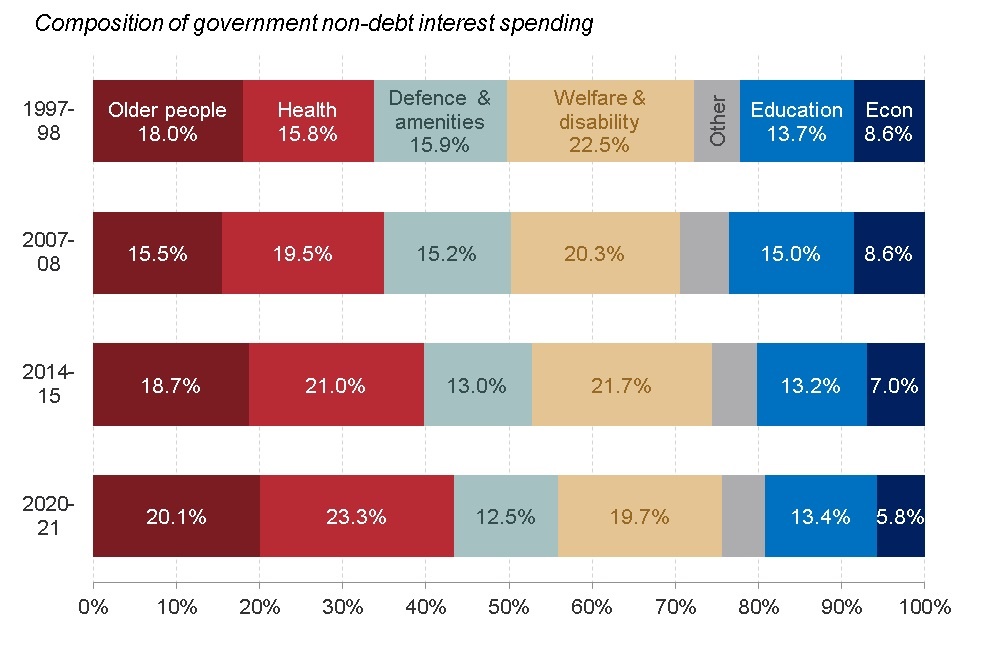10.11.15
Despite cuts, share of state spending for health to increase – think tank
Government spending on the NHS and old age will grow to more than twice the share allocated to education and economic development combined by the end of this Parliament, Resolution Foundation has found today (10 November).
Total state spending on health and old age will reach an all-time high of 43% by the end of the decade – a rise of around one-quarter since 2007.
The think tank analysed state spending ahead of the chancellor’s Spending Review on 25 November, identifying that his deficit reduction programme is being achieved largely through spending cuts.
But while the magnitude of these cuts is given the spotlight, the profile of spending is also changing considerably.
Matt Whittaker, Resolution Foundation’s chief economist, said: “The focus on spending cuts as the driver of deficit reduction, combined with protections for areas such as health and pensioner benefits, has created a big shift in state support towards older people – and away from children and young adults.
“While the focus of the Autumn Statement will largely be on how the pain of spending cuts has been spread around departments – as well as any changes to tax credit reforms – it’s important to step back and consider what the chancellor’s plan means for the long-term role of the state, and the support it provides across different parts of the population.”
A shift towards increased spending of 14% on the NHS means that 2019-20 health resource spending (40% of departmental spending) is projected to be two and a half times the size of 15 government departments combined (16%).
By contrast, the health budget was slightly smaller than these other departments in 2010.
Similarly, the think tank’s analysis identified a growing generational gap in welfare provision, with spending on pensioners set to rise by around 19% while spending on children and working-age adults is projected to drop. As a result, spending on pensioner benefits will account for over half of all welfare spending by the end of this decade.

So far, the chancellor has already agreed on departmental cuts to the Treasury and the ministries of local government, transport and environment.
But although the NHS budget is ring-fenced and expected to grow by £8bn until 2020, many organisations have come forward urging the chancellor to integrate health and social care in order to rescue both sectors.
Members from the ground-breaking Barker Commission, for example, published a statement yesterday (9 November) voicing concerns that recommendations from last year’s report were not taken on board.
The commission, chaired by Dame Kate Barker, asked that the government use the £6bn earmarked for the Dilnot reforms in the upcoming Spending Review as a contribution to meeting the increased NHS funding while stabilising social care spending.